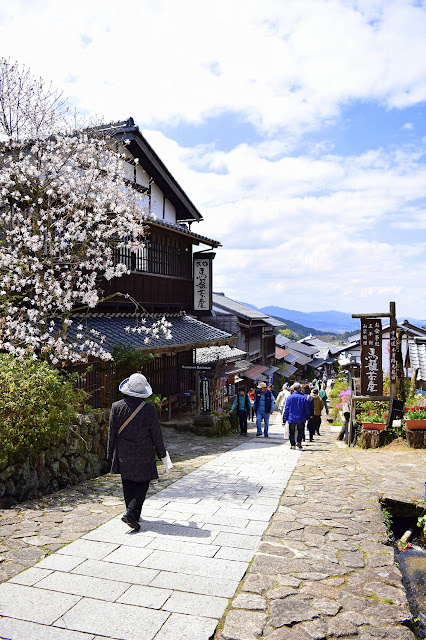In history classes, one of the first things we learned was the atrocities of World War II committed by the Japanese toward our countrymen and allied forces. Their soldiers raped our women and queer citizens – comfort women and comfort gay, as they were called – an abuse so grotesque that many ended up infertile from the number of soldiers lining up to assault them day in and day out.
They tortured our men, stripped them naked, and knocked their teeth for gold. They murdered them – cramming them in sweltering box cars, making them walk a hundred kilometers under direct sunlight without head cover, food, or water; and shooting those who asked; and bayoneting those who fell from exhaustion during the infamous Bataan Death March. They orphaned our children, if not killing them in the process. Though it was short-lived in comparison to the Spanish colonization, they invaded our space and robbed us of freedom and rights. It remains unforgivable for many of us. The hurt runs deep in our people, despite some efforts at repatriation and (non)apologies.
My mother worked in Japan as a hostess when I was a toddler. Our family photo albums are filled with mementos of her weekend trips to Tokyo and Nagoya: hand on a wide-brimmed hat, sakura, peculiar statues on hills, shrines, random local friends. In those pictures, we glimpsed into the bubblier side of her life as a foreign worker.
Outside these pretty portraits were horror stories: occasional run-ins with Yakuza, being sexually abused by an employer, homesickness amid fellow Filipinas who drink themselves to death to block out the pain. She did not last a year, and went home near penniless, with only her clothes in her trolley and some trinkets for pasalubong. Along with lessons from history classes, her stories lent the impression that Japan was an unkind land, though its people were remorseful about the government’s past atrocities.
“Many of the Japanese would take back what happened if they could. They want to gain our forgiveness,” she shared. In my head though, I pondered, “Then how come its government is not acknowledging the pains of our women? Why is it refusing to apologize for its war crimes? When I grow up, I will not go to Japan,” I thought with much resolve.
The Universe, it turns out, has a way of realigning one’s perspectives. One April day, I was called to travel to Nagoya for a writing assignment. Known as a manufacturing hub in the Aichi Prefecture, a local paper calls it the country’s “most boring city”. I did not expect to be mind-blown, yet mind-blown I was.
Nagoya is homey and quiet, its small tea houses perfect for cozying up to a book and a cuppa. More ideal for introverts than loud travelers searching for inebriated nights, its gentle slopes lead to secret parks where sakura can be admired. The pristineness of every point and plane was astounding.
Nagoya is also the perfect base for exploring nearby prefectures like Nagano and Gifu, both short bus rides away. In the former, one can delight in the old town of Matsumoto from a 400-year old, six-story high Samurai castle. In Gifu, we took leisurely strolls along cobblestone streets in Magome-juku, whose old world charm lends itself to the Edo period. On either side of the hilly pathways overlooking the mountains are museums, tea houses, souvenir shops, accommodations, and stalls for native takeaways. One rainy day, we traveled to Shirakawa-go, a 68-hectare valley bordered by the Sho River and Mount Hakusan. The village is a prominent winter attraction, when its snow-covered Gassho farmhouses resemble those in Christmas cards. But even with gloomy weather, its solitude, bound by the natural world, is food for the soul.
The bigger revelation though was, even in my home country – a land known to be among the sunniest and most hospitable in the world – “pakikipagkapwa” or regard for others, doesn’t run as deep as it does in Japan.
The Japanese, collectivist as they are, are gentle, considerate, and polite. Theirs isn’t a society that lives for the “I”. They are careful not to bother or intrude, often excessively so. It is a society where individuals are always conscientious of others’ welfare – certainly not what I envisioned from history books or the Yakuza stories my mother brought home. They continue to transcend their country’s grotesque history.
History is complicated. It is oft-difficult to parse the country from the countrymen. Outsiders like me are prone to biases from past crimes committed by ancestors of certain countries. Setting foot in Japan reminded me that yesterday is the continuation of the present, but that, much like we cannot choose our parents, a country’s sons and daughters cannot choose their ancestors. However, all of us here living in the Now can choose to openly acknowledge past wrongs and work together to course-correct them.
To say “Sayonara” to the warm Japanese people who took amazing care of us and to take that last step off Nagoya’s Chubu Airport stung. Whenever I look back at photos of that trip, a part of me longs to return. I know then that I have grown to love Japan and its people – in some aspects as much as I love my Philippines. How ironic that is: to love a country that was once a villain to yours.
When I visit places where our soldiers were tortured and killed in the war – Corregidor, San Fernando, Mariveles, and Capas – those history classes and the cruelty that was done to my ancestors remain in memory. But I also remember that forgiveness does not mean forgetting wrongdoing. It means mending the wound until it no longer hurts. Nurse it until you can see a scar and say, “This scar is a part of me, but I refuse to let it define all of me. I refuse to be a mere casualty.”
In history classes, one of the first things we learned was the atrocities of world war – those committed by the Japanese foremostly. Their soldiers raped our women. They killed our men and children. They invaded a space that is ours and declared it theirs – though a declaration that’s only short-lived.
My mother worked in Japan when I was a toddler. Our photo albums are filled with her weekend trips to Tokyo and Nagoya: a hand on a wide-brimmed hat, sakura or peculiar statues on hills, random local friends. In those pictures, we glimpsed into the bubblier side of her life as a foreign worker.
During these early years, I didn’t imagine wanting to be there. In a way, those history classes, along with the story of yakuza mobsters, frightened me. Outside those pretty portraits, all we heard of from Mama was how bad it was to be there. She didn’t even last a whole year. She did say though that the Japanese are very remorseful. If they could, they’d take back what happened. They’ll do anything to gain our forgiveness.
When I came there for an assignment last year, I didn’t expect to be mind-blown. Yes, the pristine state of any point and plane was astounding. But the bigger revelation was, even in my home country – a land known to be among the sunniest and most hospitable in the world – “pakikipagkapwa” doesn’t run as deep as it does in Japan.
The Japanese are gentle, considerate, and polite. Theirs isn’t a society that lives for the “I”. They are careful not to bother or intrude, often excessively so. It is a society where people are always conscientious of others – certainly not what I envisioned from those books or the yakuza stories my mother brought home. It’s a country that continues to transcend its grotesque history.
To take that last step off the airport terminal in Nagoya stung. Whenever I look back at photos of that trip, there’s always a part of me that wants to go back. I know then that I’ve grown to love Japan and its people, in some aspects, as much as I love my Philippines. How ironic that is: to love a country that was once a villain to yours.
When I visit places where our soldiers were tortured to death during the war, such as Corregidor, San Fernando, Mariveles, and Capas, I still remember my history classes; the cruelty that was done to our people. But I also remember that forgiveness doesn’t mean forgetting wrongdoing. It means mending the wound until it no longer hurts. Mend it until you can see a scar and say, “This scar is a part of me, but I refuse to let it define all of me. I refuse to be a mere casualty.”


